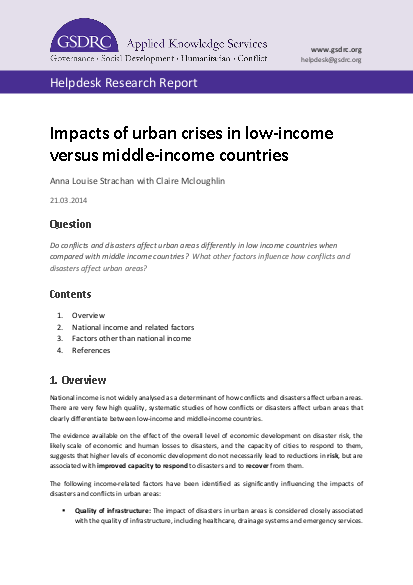
National income is not widely analysed as a determinant of how conflicts and disasters affect urban areas. There are very few high quality, systematic studies of how conflicts or disasters affect urban areas that clearly differentiate between low-income and middle-income countries.
Responding to this research gap, this report attempts to address the following questions: Do conflicts and disasters affect urban areas differently in low income countries when compared with middle income countries? What other factors influence how conflicts and disasters affect urban areas?
This report finds that the evidence available on the effect of the overall level of economic development on disaster risk, the likely scale of economic and human losses to disasters, and the capacity of cities to respond to them, suggests that higher levels of economic development do not necessarily lead to reductions in risk, but are associated with improved capacity to respond to disasters and to recover from them.
Resource collections
- UN Habitat - Urban Response Collection
- Urban Response - Urban Crisis Preparedness and Risk Reduction
- Urban Response Collection - Community Engagement and Social Cohesion
- Urban Response Collection - Economic Recovery
- Urban Response Collection - Environment and Climate Change
- Urban Response Collection - Housing, Land and Property
- Urban Response Collection - Urban Crisis Response, Recovery and Reconstruction
- Urban Response Collection - Urban Resilience